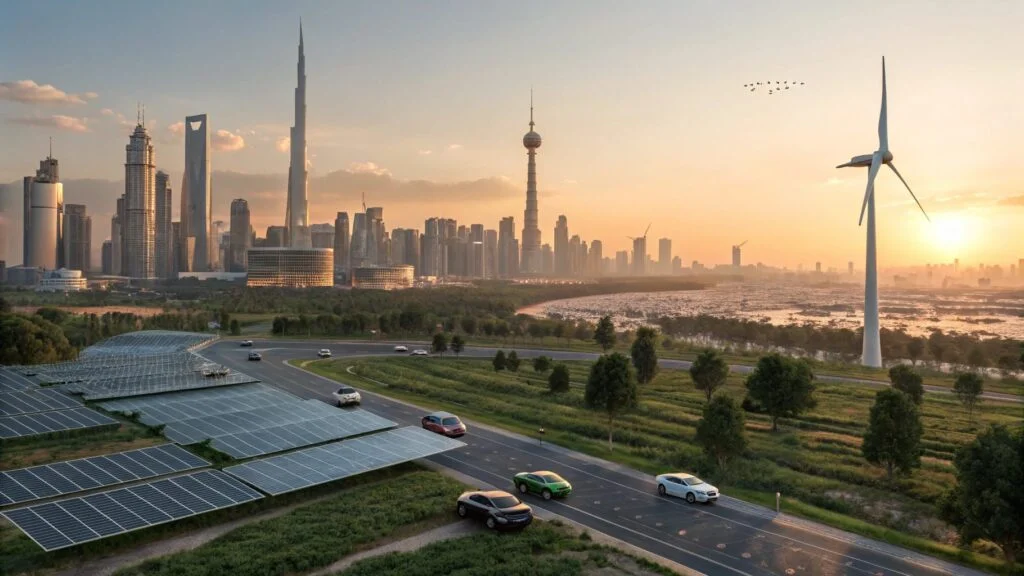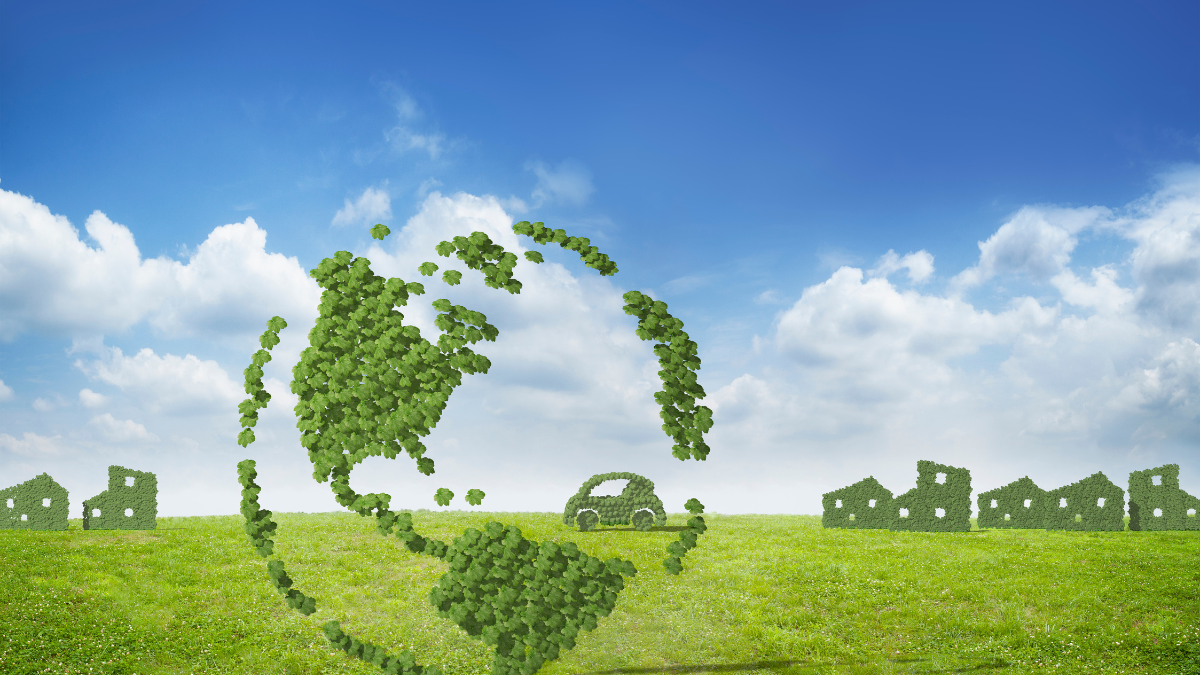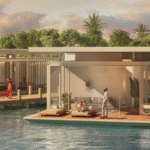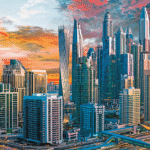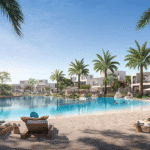Now Reading: “World’s Largest Solar Park Shaping Dubai’s Green Future Vision 2025!”
-
01
“World’s Largest Solar Park Shaping Dubai’s Green Future Vision 2025!”
“World’s Largest Solar Park Shaping Dubai’s Green Future Vision 2025!”

Table of Contents
Dubai, the shining gem of the United Arab Emirates, is making powerful strides towards a sustainable and greener future. At the heart of this movement stands the Mohammed bin Rashid Al Maktoum Solar Park, the world’s largest single-site solar park based on the Independent Power Producer (IPP) model. This grand initiative is not just a significant energy project; it is a symbol of Dubai’s vision to transform itself into a global leader in renewable energy.
A Visionary Project for a Sustainable Future
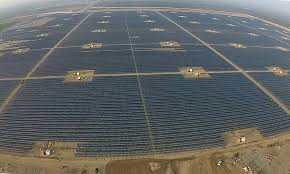
Named after His Highness Sheikh Mohammed bin Rashid Al Maktoum, the Vice President and Prime Minister of the UAE and Ruler of Dubai, the Solar Park is part of the Dubai Clean Energy Strategy 2050. This strategy aims to make Dubai the city with the lowest carbon footprint in the world by 2050.
The Solar Park is being developed by the Dubai Electricity and Water Authority (DEWA) in cooperation with a number of local and international partners. Its ambitious goal is to reach a production capacity of 5,000 megawatts (MW) by 2030, enough to power over 1.3 million homes and reduce carbon emissions by more than 6.5 million tonnes annually.
This project is not only impressive because of its size but also because of the advanced technologies it employs, such as photovoltaic (PV) solar panels, Concentrated Solar Power (CSP), and thermal energy storage solutions, allowing energy to be provided even during non-sunny hours.
Phases of Development: Step-by-Step Growth
The Solar Park is being developed in several phases:
- First Phase (2013): The first 13MW solar photovoltaic plant became operational in 2013. This marked Dubai’s initial step into large-scale renewable energy production.
- Second Phase (2017): This phase added 200MW of PV solar energy, successfully powering thousands of homes and winning global recognition for its low cost per kilowatt-hour.
- Third Phase (2020): A massive addition of 800MW of PV solar capacity took place, using state-of-the-art tracking technology to maximize solar capture.
- Fourth Phase (Ongoing): One of the most remarkable phases so far, this includes 950MW of CSP and PV energy and features the world’s tallest solar tower at 262.44 meters. This phase integrates thermal storage capabilities, which means solar energy can be stored and used overnight—solving one of the main challenges of solar power.
- Fifth Phase (Under Development): Set to add 900MW using the latest bifacial PV technology to ensure higher efficiency by capturing sunlight from both sides of the panels.
Each phase not only increases the park’s capacity but also introduces cutting-edge technology, pushing Dubai to the forefront of global renewable energy innovation.
Economic and Environmental Benefits
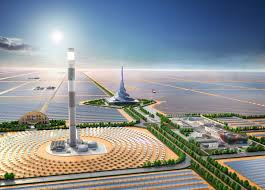
The Mohammed bin Rashid Al Maktoum Solar Park brings immense advantages to Dubai and the wider region.
1. Environmental Impact:
- The park supports Dubai’s vision of a cleaner environment by drastically reducing carbon dioxide emissions.
- Upon full completion, the park is expected to eliminate millions of tonnes of CO2 annually, equivalent to removing over 1.5 million cars off the roads each year.
2. Economic Growth:
- The park generates thousands of jobs in construction, operations, and maintenance, boosting Dubai’s green economy.
- It attracts international investors and technology providers, positioning Dubai as a hub for clean energy innovation in the Middle East.
- By producing affordable clean energy, Dubai is reducing its reliance on imported fossil fuels, enhancing energy security and price stability for residents and industries.
3. Technological Leadership:
- The project features Artificial Intelligence (AI), drones, and robotic cleaning systems to maintain solar panels without water, an essential consideration in the desert environment.
- The use of advanced storage solutions allows Dubai to supply round-the-clock renewable energy, an achievement few other nations have matched.
A Role Model for the World
Countries around the globe are watching Dubai’s Solar Park closely. The Mohammed bin Rashid Al Maktoum Solar Park proves that even cities built on oil wealth can transition toward clean energy leadership.
In 2023, Dubai achieved a new world record for the lowest Levelized Cost of Electricity (LCOE) from solar power, proving that solar energy is now the cheapest source of electricity globally.
This success also aligns with the UAE’s hosting of COP28, the United Nations Climate Change Conference, where the country emphasized the urgent need for green innovation to combat climate change.
Challenges and Future Prospects
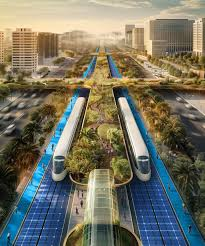
Despite its progress, the project faces certain challenges, including:
- Dust and sand accumulation on panels, which can reduce efficiency if not managed.
- Maintaining cost efficiency while deploying new, expensive storage and AI systems.
- Continuous innovation to meet or exceed ambitious 2050 carbon reduction targets.
However, DEWA’s proactive management, technological partnerships, and Dubai’s visionary leadership ensure that these challenges are met with confidence.
Looking ahead, Dubai plans to integrate this solar energy with other renewable sources such as green hydrogen production, electric vehicle charging infrastructure, and smart grid solutions—further reinforcing its status as a global clean energy leader.
Conclusion
The Mohammed bin Rashid Al Maktoum Solar Park is more than just a power plant; it is the beating heart of Dubai’s clean energy dreams. By combining bold leadership, technological excellence, and environmental commitment, Dubai is setting an example for cities and countries worldwide.
As nations seek ways to balance energy needs with climate responsibilities, Dubai’s solar park shines as a guiding light, proving that the journey to a net-zero future is not just necessary—but entirely achievable.
Read More:- Shobha Realty Launches Its Most Luxurious Project Yet—Full Details Inside 2025



